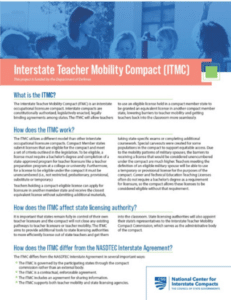19 Jul2023
By Clark Leonard

The Georgia Power Foundation Inc. has awarded UNG a $100,000 grant for its partnerships with the Hall County and Gainesville school systems to grow and diversify the teacher pipeline. Glennis Barnes, Gainesville area manager for Georgia Power, presented the check to Lauren Johnson, assistant dean of UNG’s College of Education; Sheri Hardee, dean of the College of Education; Steven Smith, vice president of regional campuses; and some of UNG’s College of Education students.
The University of North Georgia’s (UNG) Grow-Your-Own partnerships with Hall County Schools and Gainesville City Schools to expand and diversify the teacher pipeline have received a sizable infusion of funding to support these future educators.
The grant was funded by the Georgia Power Foundation’s Teachers for Georgia signature program — a program established to recruit and retain more male educators of color throughout Georgia.
“Georgia Power Foundation’s investment will ensure that students will have the necessary tools at their disposal to successfully complete their degree in education through the Grow-Your-Own program,” Glennis Barnes, Gainesville area manager for Georgia Power, said. “Since the launch of Teachers for Georgia in 2020, the Foundation has invested over $1 million to support programs and educational institutions working toward this cause here in North Georgia and across the state.”
The Realizing Inspiring and Successful Educators Undergraduate Program (RISE UP) launched in Fall 2017 with Hall County Schools supports heritage Spanish-speaking graduates of Hall high schools through UNG’s teacher education programs. The school district covers students’ tuition, fees, and assessment costs while UNG provides participants targeted advising and opportunities for peer support. Students serve as paraprofessionals within the school district while they are students at UNG and have a teaching job upon graduation.
19 Jul2023
By Kaitlyn Brennan
On behalf of AACTE, I wanted to take a moment to express my gratitude to those who attended the recent policy and advocacy event in Washington, D.C. Your presence and active participation made it a resounding success, and I’m thrilled that we had the opportunity to discuss and advocate for programs that strengthen and expand the education workforce. Additionally, please take a moment to watch the brief video from AACTE’s President and CEO Lynn M. Gangone. She encourages us to stay connected so that we can remain active and engaged in the work of advocating for educator preparation.
18 Jul2023
By AACTE

The “Strengthening Educator Preparation: Addressing Needs and Exploring Innovative Solutions” congressional briefing organized by AACTE, University of Northern Iowa (UNI), and American Association of State Colleges and Universities (AASCU), took place today, Tuesday, July 18, on Capitol Hill. The briefing brought together a group of university presidents and deans, all AACTE members, from around the country for a candid conversation on issues impacting educator preparation and innovative solutions.
The issue summary provided to briefing participants stated, “the educational profession is in crisis.” The summary outlined the following four legislative actions necessary to address the crisis:
- Removing financial barriers to entering the education profession
- Updating and expanding the Teacher Quality Partnership Grant Program
- Reauthorizing the Augustus F. Hawkins Centers of Excellence Program
- Increasing Capacity of Educator Preparation Programs
18 Jul2023
By AACTE

AACTE invites you to step into a more influential role and help shape the content at the 2024 Annual Meeting. The deadline is fast approaching. Apply to be a reviewer by July 21.
By becoming a reviewer of Annual Meeting proposals in this highly selective process, your service to the field will be celebrated and shared with peers and educational leaders.
- Sharpen your skills: Stay at the forefront of educational innovation and enhance the quality of your writing, teaching, and research.
- Bolster your portfolio: Acquire service to enhance your assessment for tenure and promotion by demonstrating your commitment to advancing the field.
- Increase your influence: Receive a certificate of appreciation, highlighting your expertise and dedication to the field.
Service as a reviewer of Annual Meeting proposals is open to doctoral students and faculty. And don’t forget, you can still submit an Annual Meeting proposal, even while serving as a reviewer.
18 Jul2023
By AACTE

Have you or do you know someone who recently completed a doctoral dissertation related to educator preparation? Now is the time to submit entries for the AACTE 2024 James D. Anderson Outstanding Dissertation Award. The deadline for submission is July 28.
This award recognizes excellence in doctoral dissertation research (or its equivalent) that contributes to the knowledge base of educator preparation or of teaching and learning with implications for educator preparation.
Overseen by AACTE’s Committee on Research and Dissemination, the award includes a $1,000 cash prize as well as special recognition at AACTE’s Annual Meeting in Aurora/Denver, CO, February 16 – 18, 2024.
18 Jul2023
By Madeline Will
 It’s about to get much easier for some teachers to keep teaching after moving across state lines.
It’s about to get much easier for some teachers to keep teaching after moving across state lines.
Ten states have signed on to the Interstate Teacher Mobility Compact this spring — the benchmark needed for the agreement to become active. Now, a teacher who has a bachelor’s degree, completed a state-approved program for teacher licensure, and has a full teaching license can receive an equivalent license from participating states.
That means they can teach in another state without having to submit additional materials, take state-specific exams, or complete additional coursework.
Read the full article in EdWeek.
AACTE is one of the organizations that contributed to the development process for the Interstate Teacher Mobility Compact.
For more information, read the recent press release issued by The Council of State Governments (CSG).
AACTE is one of the organizations that contributed to the development process for the Interstate Teacher Mobility Compact.
For more information, read the recent press release issued by The Council of State Governments (CSG).
18 Jul2023
By Kaitlyn Brennan
The “In the States” feature by Kaitlyn Brennan is a weekly update to keep members informed on state-level activities impacting the education and educator preparation community.
Earlier this month, The Department of Education’s Office for Civil Rights (OCR) announced that the Rhinelander School District in Rhinelander, Wisconsin entered into an agreement to ensure compliance with Title IX of the Education Amendments of 1972 when responding to harassment based on gender identity.
The investigation by OCR found that during the 2021-22 school year, a nonbinary student and their parent reported to the district that students repeatedly mocked and targeted the student during multiple classes, while multiple teachers repeatedly used incorrect pronouns for the student and one teacher removed the student from class on the ground that the teacher could not protect the student from harassment by the other students.
18 Jul2023
By Kaitlyn Brennan
This weekly Washington Update is intended to keep members informed on Capitol Hill activities impacting the educator preparation community. The views expressed in this post do not necessarily reflect the views of AACTE.
On Thursday, House Republicans released their FY2024 Labor HHS Education Appropriations bill. The bill provides $67.4 billion in discretionary funding for the Department of Education — a 15% cut. However, when taking into account the additional $10 billion of existing K-12 funding that was rescinded as part of the bill — the overall cut comes to $22.1 billion or a 28% decrease compared to the current FY2023 enacted levels. The bill also seeks to use policy riders as a means to block a number of Biden Administration proposals surrounding education and student debt relief. We won’t have a complete line by line breakdown until the bill goes to a full committee mark up, but as it currently stands the only seeming increase for the Department of Education goes to Charter Schools with a $10 million increase. The bill freezes funding for special education programs, Impact Aid, career technical and adult education, and the maximum Pell grant at the current level of $7,395.
11 Jul2023
By Tunara Moore

Have you considered playing a crucial role in shaping the educational content offered at the premier national conference for the educator preparation community? If so, consider serving as a reviewer or submitting a proposal for the 2024 AACTE Annual Meeting, occurring February 16 – 18 in Denver, CO.
11 Jul2023
By AACTE

The 2023 Leadership Academy is not just another leadership program — it’s a transformative experience that will:
- Enhance leadership skills;
- Address current issues; and
- Build a professional peer network.
Join a professional network of deans, chairs, and heads of education preparation programs who have already registered. Secure your spot at this must-attend event for higher education leaders and register before Friday, July 14.
 Location
Location: Denver, CO
 Date
Date: July 30 – August 4
11 Jul2023
By Kaitlyn Brennan
This weekly Washington Update is intended to keep members informed on Capitol Hill activities impacting the educator preparation community. The views expressed in this post do not necessarily reflect the views of AACTE.
While Congress was on recess, the Supreme Court issued two major rulings impacting higher education: affirmative action and student debt relief. The Supreme Court ruled 6-3 that the Biden Administration’s effort to eliminate nearly $400 billion of student loan debt was an illegal use of executive power. The Department of Education had already approved the relief for upwards of 16 million borrowers with millions of additional applicants pending.
11 Jul2023
By Kaitlyn Brennan
The “In the States” feature by Kaitlyn Brennan is a weekly update to keep members informed on state-level activities impacting the education and educator preparation community.
California is poised to potentially pass two new bills that would pay teacher candidates while they are student teaching and begin a public relations campaign to recruit new teachers into the profession.
Under current credentialing standards, California teachers are required to complete 600 hours of student teaching. Without pay, the student teaching experience, while vitally necessary for candidates, is considered a roadblock. Students are still required to pay for tuition, books, supplies, living expenses, and more, with limited time available to secure supplemental income.
11 Jul2023
By Brooke Evans
Our interconnected, global society highlights the importance of globally competent teaching to help students make sense of complex topics and issues worldwide and prepare young people for global citizenship. As part of AACTE’s Global Education Faculty PLC Professional Development Series, on Thursday, July 27, from 2:00 –3:00 p.m. ET, you are invited to learn about tools and strategies designed to help embed global education within K-12 classrooms. The webinar, Innovative Best Practices for Embedding Global Education in K-12 Classrooms, is for educators interested in developing students’ global competencies through classroom and community approaches. The goal is to showcase examples of pedagogy, practice, and actions teachers can employ with students in developing global competencies.
11 Jul2023
By Audrey Breen
This article was originally published by UVAToday.

Most modern school systems are actually designs from the last century. A UVA professor is researching applying classroom mindfulness techniques to bring them into the present. (Illustration by Emily Faith Morgan, University Communications.)
What’s good for a classroom may be good for an entire school system.
For 20 years, Patricia Jennings, a professor of education at the University of Virginia’s School of Education and Human Development, has worked to apply mindfulness practices and compassion to help teachers create a more emotionally supportive learning environment in the classroom, a sometimes high-stress space that is both cognitively and emotionally demanding.
Now she is also considering how mindfulness can extend beyond classrooms and play a role in re-envisioning and modernizing entire education systems.
11 Jul2023
By Erica Techo
This article was originally published by the University of Georgia’s College of Education.
A new study from the University of Georgia aims to improve how we evaluate children’s creativity through human ratings and through artificial intelligence.
A team from the Mary Frances Early College of Education is developing an AI system that can more accurately rate open-ended responses on creativity assessments for elementary-aged students. This project was funded by the U.S. Department of Education.











 It’s about to get much easier for some teachers to keep teaching after moving across state lines.
It’s about to get much easier for some teachers to keep teaching after moving across state lines.

